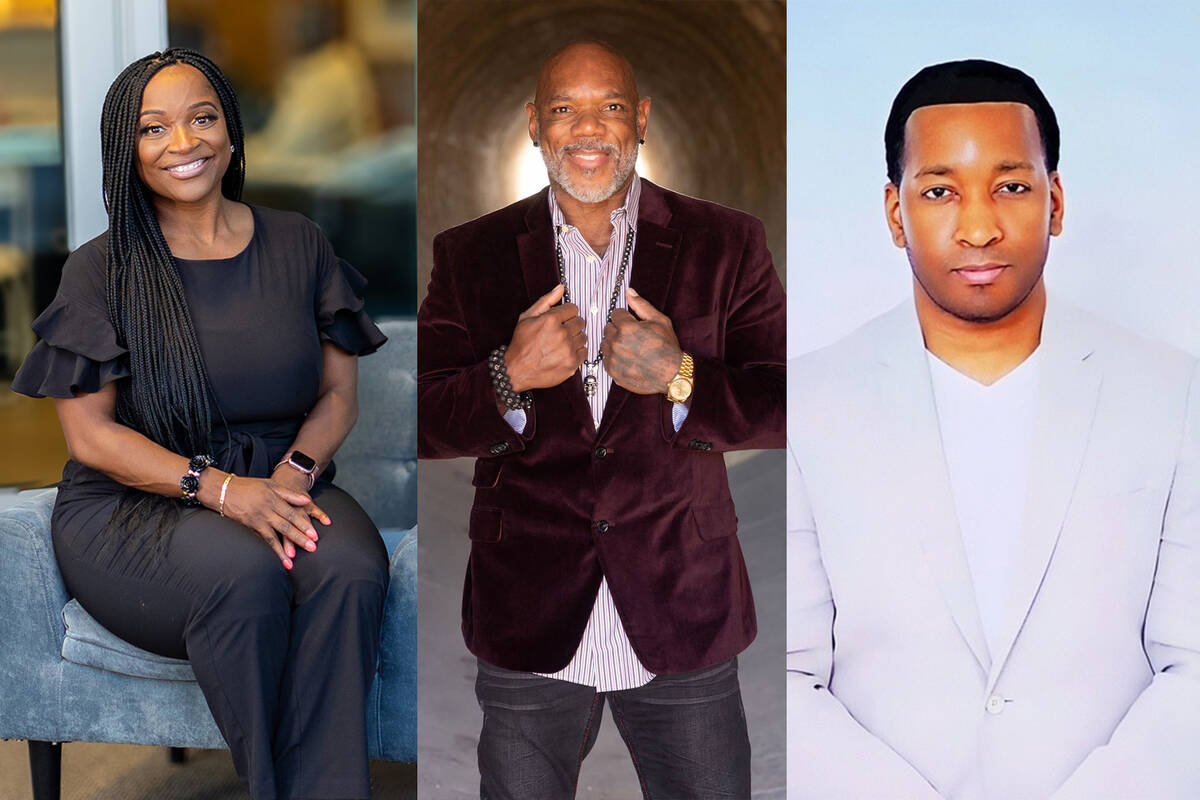Men too often ignore their health, but this gathering aims to help

June is Men’s Health Month. The heightened awareness surrounding our well-being is a good thing, but it’s really imperative that men prioritize their health year-round.
Many health problems that affect men are preventable. Education and awareness centered on the early detection of diseases such as cancer, diabetes, heart disease and various mental health conditions can save lives.
The Men’s Health Conference, returning to Las Vegas City Hall this month for its fourth year, aims to help with this issue. The public may attend an opening night reception from 6 to 9 p.m. June 27. The free, men-only conference runs from 10 a.m. to 3 p.m. June 28.
“The conference was born from a place of urgency and divine inspiration,” founder Natasha Mosby says. “During the height of the COVID-19 pandemic, I noticed a troubling void: Men’s health was not being addressed at a macro level in the state of Nevada.
“What concerned me most was the data. Health disparities among men were staggering. Chronic conditions such as hypertension and prostate cancer were prevalent, and mental health concerns like anxiety, depression and suicide were steadily rising.”
Mosby knew the best way to inspire change was to bring men together in one setting. She collaborated with the city of Las Vegas and its Neighborhood Outreach along with eight dedicated men from the community to bring her vision to reality.
“Far too often, men were only seeking help in moments of crisis,” Mosby says. “I knew we had to create a space where they could be met with compassion, resources and support, without barriers or stigma.”
More than a conference
The theme of this year’s conference is “Generational Health.” Alphonso Gibbs, a co-organizer of the conference, says the objective is “to explore our relationships to health care, consider the origins, and hold them up against how we are currently faring. Why do or don’t we make our health a priority?”
“This event invites you to explore the deep connections between family history, lifestyle choices and long-term well-being,” co-organizer Vic Ross adds. “We’ll uncover the importance of knowing your roots — your family’s health history — and how this knowledge can inform smarter decisions for maintaining and improving your health.”
A story of strength
I had the honor to be a featured speaker at the previous three conferences. But it was the insight I learned from the other speakers that made attending an invaluable experience.
This year, one of the featured speakers is Kenneth “Flex” Wheeler, a retired professional bodybuilder who is considered one of the sport’s all-time greats.
Wheeler, 59, who lives in Southern Nevada, has spent a lot of time over the past few years discussing the mental and physical health challenges he had to overcome. He received a kidney transplant in 2003 and underwent a partial amputation of his right leg. He also struggled with dyslexia and was molested as a young boy.
Because of the piercing trauma that Wheeler experienced, he tried taking his life during early adolescence.
“I went through a lot of things that young boys should not have to go through,” he shares. “The first time I was molested I was only 5 years of age, and this continued until the age of 16. I used to sit in the dark on my grandmother’s couch and I would daydream that one day it will not be like this, that one day it would be better.”
Paying it forward
Despite the scars from the emotional pain he suffered, Wheeler became a star bodybuilder, which widened his global platform. When he spoke about sensitive topics, he was amazed by the responses.
“I started having this desire to help people, and when I started to gain notoriety, I started sharing my life experiences and I would receive letters from people all around the world about how sharing my story helped them,” Wheeler says.
Others helped him during some of his lowest moments, he adds.
“I got in a bad car accident during the middle of my prime. My sponsor dropped me while I was recovering in the hospital, so I lost my income and did not have a place to stay,” Wheeler recalls. “A person that I looked up to had a condominium and he let me stay there. I was like, ‘I could never repay you.’ And he said, ‘Pay it forward by helping somebody else.’”
Unifying vision
As this year’s conference approaches, Mosby reflects on the vision that brought everything together.
“I reimagined the purpose of my private practice and business model,” she says, “and I expanded its reach to offer free, community-based wellness services that would intentionally center men’s health alongside services for children, women and families.”
Registration is now open. Visit nsmhealthandwellness.com for more information.
If you’re thinking about suicide, or are worried about a friend or loved one, help is available 24/7 by calling or texting the Lifeline network at 988. Live chat is available at 988lifeline.org.
Sheldon Jacobs, Psy.D., LMFT, is a licensed mental health professional based in Las Vegas. Contact him at drjacobs10@hotmail.com. Follow @drjacobs33 on X and Instagram.